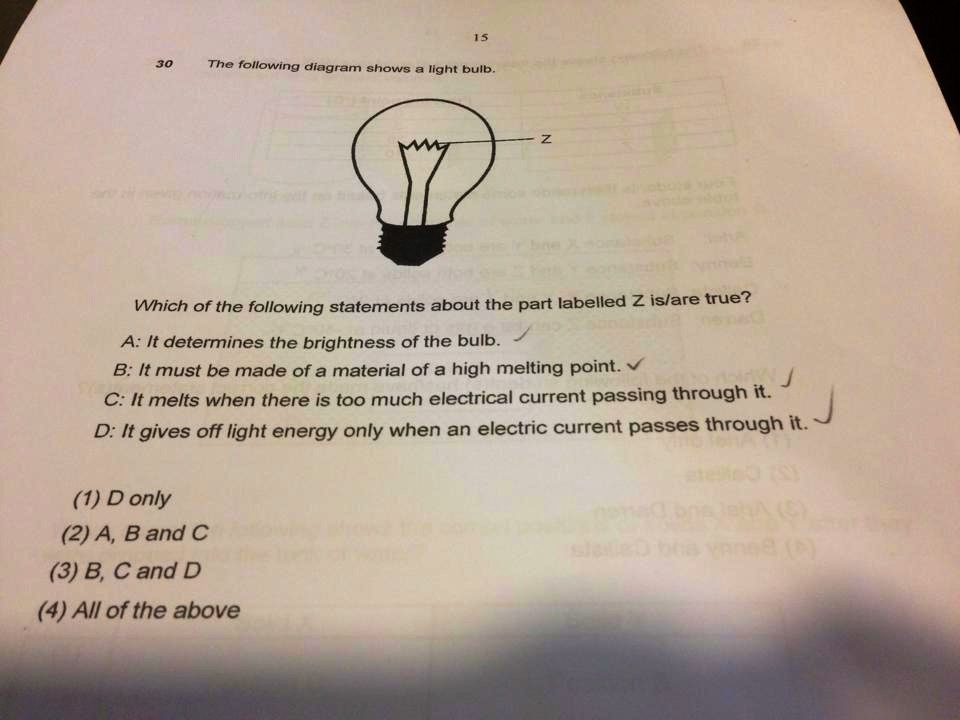This picture has been making its way around the internet. This is a Primary 6 Science question that has a questionable answer. As teachers, there are times when we make mistakes in crafting answers for a multiple-choice question. Good thing there is often a fail-safe in the form of our colleagues who would help each other vet the questions we set. Sometimes, despite all effort, mistakes are made such as this
The story according to the person who posted this:
This P6 science question is taken from a paper that is set by a local brand name primary school. The majority of the students who took this test gave the answer as (4). The science teacher insisted that the answer is (2). The reason given was that sentence D should be interpreted to mean that only light energy is given off when an electric current passes through it.
The children, as well as many other adults who are well versed in the English language, unanimously agreed that the students were correct to interpret the sentence as meaning that the bulb will give off light energy (though it does not rule out other forms of energy) only if an electric current passes through it (so if there is no electric current, the bulb will not give off light energy.
The HOD called to clarify that her teacher (and therefore the dept) is correct. She apparently said that there is nothing wrong with the statement, and that it is not meant to be read in an ‘English’ way, but rather in a ‘scientific’ way. She then proceeded to read the sentence aloud, pausing after the word ‘only’. When it was pointed out to her that there is a need for a comma after ‘only’ if it is to be read with a pause, she insisted that that was the ‘scientific’ way of reading the sentence, and went on to qualify that laymen would not be able to distinguish between the scientific reading and the English reading, but that the students, having studied the subject for four years, were expected to tell the difference. According to her, this would set the A* students apart from the A students.
Since when our English language developed a ‘scientific’ dialect?! And if you cannot apply standard English language rules to reading the questions of a paper set in English, then perhaps we need to clarify that the paper is written in Scientific-English instead? What kind of nonsense is this?
Many netizens have condemned the answer which was given by the teacher as (2) instead of (4), what made matters worse was the defence given by the HOD. I agree that the statement D could be better phrased as “It gives off only light energy when an electric current passes through it”, therefore making it a false statement and hence, not part of the answer.
This incident reminds us of the need to be careful in the way we phrase our questions, often re-reading them to see if they could be misinterpreted or if they could be made clearer.
